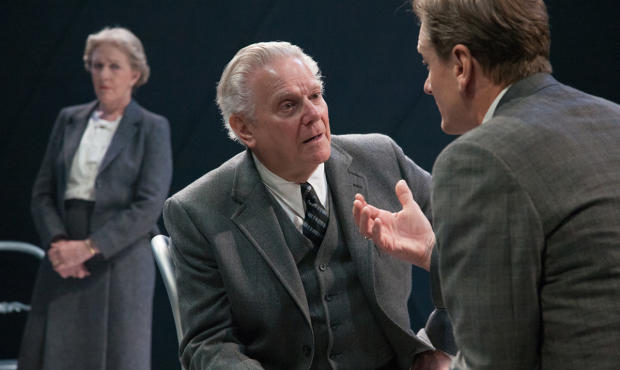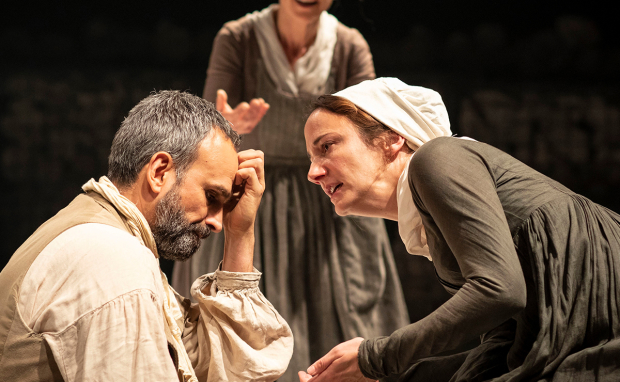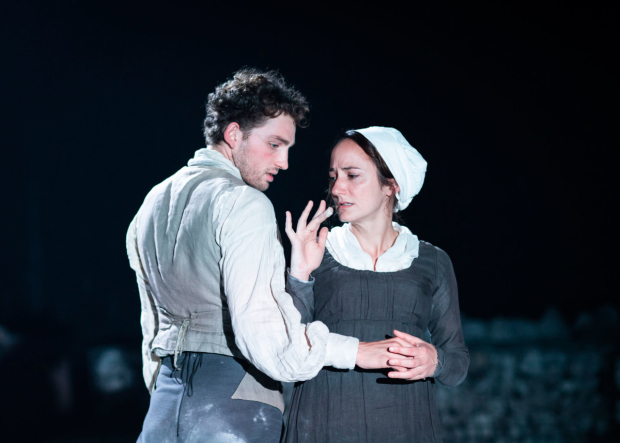Review: Copenhagen (Minerva Theatre, Chichester)

© Conrad Blakemore
How far can human history be determined by a series of seemingly random events? For example, Archduke Ferdinand's decision to make a detour in Sarajevo changed the fate of Europe and, if Frayn's version of history is to be believed, the failure of Heisenberg to calculate the amount of Uranium-235 needed to make the necessary critical mass for a nuclear weapon meant that Germany failed to conjure up an atomic bomb of its own.
Heisenberg's trip to Copenhagen in 1941 to see his former mentor Niels Bohr has been the subject of much speculation, not least because of the contrasting accounts given by the main protagonists after the event. And, as Frayn reveals in the programme notes, the first production of the play led to the discovery of unpublished letters from both Bohr and Heisenberg – which, rather than shedding further light on the issue, merely added to the mystery – although Frayn decided against revising the text, despite the new revelations.
There didn't need to be any change. This is a superb, well-acted production, providing the audience with plenty to think about. Charles Edwards' Heisenberg and Paul Jesson's Bohr both give excellent portrayals of the two scientists, veering between being close colleagues and antagonists from opposite sides of the war – almost a human example of Bohr's complementarity theory. However, the best lines come from Patricia Hodge's Margrethe, Bohr's wife, who offers a spikier response to Heisenberg's visit than her more emollient husband, yet offers a series of mordant comments on the two scientists' unworldliness.
Michael Blakemore's production bubbles with tension. Bohr and Heisenberg circle the stage like electrons around a nucleus, occasionally making an intellectual leap to another quantum level.
What's truly remarkable about this play is the way that Frayn touches on some of the most complex theorems in science and yet presents them in a way that renders comprehensible by all – or, as Bohr says, "so Margrethe can understand them".
But the real core of the play is the realisation, by both men, that they and their fellow scientists hold the fate of the world in their hands, "who determine which cities shall live and which be destroyed", observes Margrethe. If it had been Heisenberg who correctly calculated the correct critical mass, the world would look very different.
















